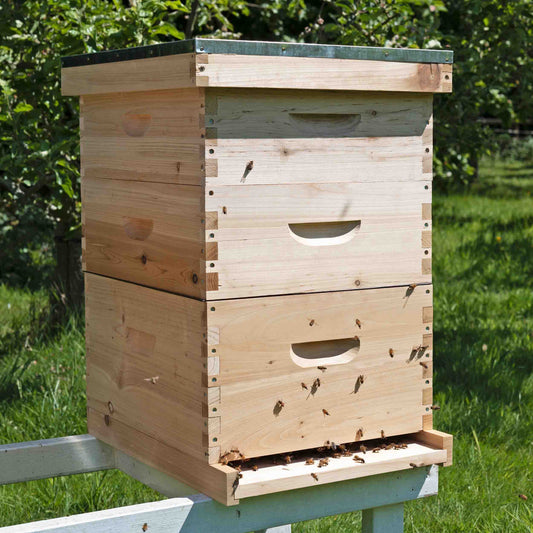
What is Nosemia in honey bees?
Nosemia is a fungal infection of the digestive tract in bees and is caused by two fungi:
Nosema apis - common in temperate regions and affects bee digestion and weakens colonies.
Nosema cerane - more aggressive than Nosema apis and often leads to colony collapse.
What causes nosema to spread:
- Infected feces – Bees ingest spores when cleaning contaminated hive surfaces.
- Contaminated food or water – Spore transmission through feeding
- Drifting and robbing – Infected bees spread Nosema between colonies

Lots of diarrhea outside the hive on the entrance.
Symptoms of Nosema in Honeybees
- Dysentery (bee diarrhea) - This is the most common symptom and it's likely that if this isn't present then it's unlikely to be Nosemia
- Weak, crawling bees – Bees unable to fly properly.
- Declining colony population – Bees disappear or die outside the hive.
Treatment & Prevention
- Fumagillin (antimicrobial treatment) – Only approved medication, but effectiveness varies.
- Feeding probiotics (Hive Alive) – Supports gut health and reduces infection rates. Cheaper alternatives to Hive Alive might be adding adding an off-the-shelf multivitamin to their syrup. This is effective, but as it is not an approved bee medicine in the UK, so technically against the law.
- Hive hygiene – Replacing old combs and cleaning equipment.
- Strong nutrition – Providing protein supplements to support immune function.
- Winter Management – Reducing hive stress and moisture levels.


